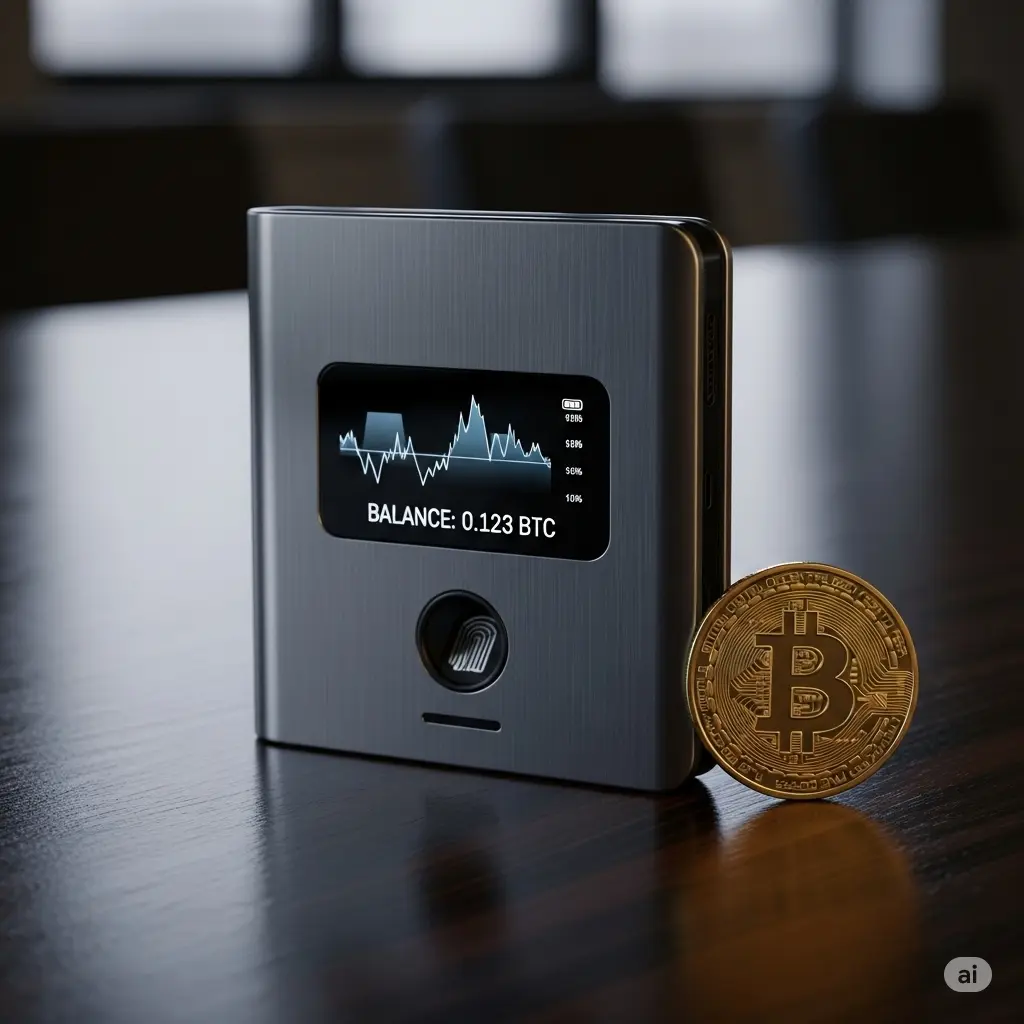Proven Secure Crypto Wallet that Shields Your Crypto Reliably
Secure Crypto Wallet plays a critical role in protecting your digital assets now. Crypto theft and scams escalate in 2025. Investors search for reliable solutions. A proven secure crypto wallet ensures safe access to your funds anytime. This guide helps you choose the best option. It covers cold wallet, hot wallet, hardware wallet, mobile wallet, and decentralized wallet. You’ll learn differences, security tips, risks, and backup steps. This article also ties to the latest updates on Global Crypto Sports. Why is now the moment? Blockchain fraud is growing. DeFi hacks make headlines. Web3 wallets face new threats. You must act wisely. Let’s dive into trusted solutions so your crypto stays safe and accessible.
What Is a Secure Crypto Wallet?
A Secure Crypto Wallet stores your cryptocurrency keys safely. It serves as your gateway to ownership. It manages your private keys offline or online. Offline wallets are known as cold wallets. Online wallets are hot wallets. A hardware wallet is a physical device that stores keys offline. A mobile wallet stores keys on your phone. A decentralized wallet gives you full control. You remain in charge of your keys. The highest security comes from wallets with no internet connection. Yet you should choose based on convenience, security, and backup. Global Crypto Sports readers expect reliability. We deliver with real-world tested advice.

Key Terms Explained
To follow this guide, let’s define core terms clearly.
- Blockchain: A digital ledger that records transactions in linked blocks.
- DeFi (Decentralized Finance): Financial services without intermediaries, built on blockchain.
- Web3: The next internet generation emphasizing decentralization and user control.
- Cold Wallet: A wallet completely offline, immune to online hacks.
- Hot Wallet: A wallet connected to the internet, user-friendly but less secure.
- Hardware Wallet: A physical device storing crypto keys offline.
- Mobile Wallet: A wallet app on your smartphone.
- Crypto Wallet Security: Practices to keep your wallet keys safe.
- Wallet Backup: A copy of your keys or seed phrase to restore access.
- Decentralized Wallet: A wallet where you alone hold cryptographic keys.
Types of Wallets and How They Protect You
Cold Wallets
Cold wallets operate offline. They defend against online threats. They include paper wallets and hardware wallets.
Advantages of cold wallets:
- No internet access prevents remote hacks.
- Strong protection for large holdings.
- Great for long-term storage and HODLing.
Drawbacks:
- Less convenient for frequent trades.
- Risk of physical loss or damage.
- Wrong backup storage can lock you out forever.
Example: A long-term investor storing Bitcoin in a hardware wallet for years. Their funds remain safe from exchange hacks.
Hot Wallets
Hot wallets connect to the internet—mobile or desktop. They offer convenience.
Advantages:
- Instant access for trading and DeFi.
- Easy use for beginners.
- Ideal for daily transactions.
Drawbacks:
- Vulnerable to malware and phishing.
- Exchanges can get hacked.
- Not ideal for long-term storage of large amounts.
Example: A Global Crypto Sports subscriber uses a mobile wallet for quick betting on sports-based crypto platforms.
Hardware Wallets
Hardware wallets are specialized offline devices.
Advantages:
- Keys never leave the device.
- PIN protection bolsters defense.
- Some support multiple currencies.
Drawbacks:
- Initial cost.
- Misplacement can cause loss.
- Firmware must stay updated.
Example: A Day trader uses a hardware wallet to hold altcoins securely when not trading.
Mobile Wallets
Mobile wallets are apps on your phone like Trust Wallet or MetaMask Mobile.
Advantages:
- Lightweight, always accessible.
- Ideal for DeFi and web3 dApps.
- Fast transactions.
Drawbacks:
- Phone malware risks.
- Device theft can expose funds.
- Should use strong security on your phone.
Example: A fan of Global Crypto Sports shares wallet access codes through messaging apps temporarily for team-based crypto events.
Decentralized Wallets
Decentralized wallets grant full control to you, not any provider.
Advantages:
- No centralized weakness or shutdown.
- You control your keys.
- Works across dApps and networks.
Drawbacks:
- No backup by providers—you’re responsible.
- Mistakes can cost a serious loss.
- It may be complex for beginners.

Real-World Case Studies
A. Cold Wallet Success Story
In 2024, a collector used a paper wallet to store Ethereum. A major browser flaw was attempted to be exploited. Their cold wallet remained untouched. They confirmed their balance months later. Lesson: Cold storage works when implemented right.
B. Hot Wallet Breach
A mobile wallet app suffered an API leak. Users in one region lost funds. The breach targeted weak phone passwords. Many didn’t use wallet security best practices, like 2FA or PINs. Takeaway: hot wallets must pair with strong personal security.
C. Hardware Wallet Misplacement
An investor misplaced their hardware wallet and backup seed phrase. They lost access to over $50,000 in crypto. Outcome: Physical wallets must be secured and backed up meticulously. It’s a cautionary tale of managing hardware and seed phrases.
Pros, Cons, Benefits, and Risks Overview
| Wallet Type | Pros | Cons | Best For |
|---|---|---|---|
| Cold Wallet | Air‑gapped security, long-term safe | Less convenient, physical risk | Long‑term storage |
| Hot Wallet | Fast access, easy | Online threats, malware risk | Daily use, trading |
| Hardware Wallet | Secure, multi‑chain, offline | Costly, physical/backup risk | Safe but accessible storage |
| Mobile Wallet | Convenient, DeFi friendly | Phone threat, device loss | On‑the‑go users, Web3 |
| Decentralized Wallet | Full control, no service downtime | You carry all responsibility | Privacy‑minded holders |
Top benefits of a secure crypto wallet:
- Protects your private keys from theft.
- Gives you true ownership of your assets.
- Enables direct access to DeFi, NFTs, or Web3.
- Helps you separate long‑term holdings from daily funds.
Primary risks to watch:
- Losing your seed phrase or wallet hardware.
- Malware, phishing, or SIM swap attacks.
- Using untrusted wallet software.
- Not updating firmware or apps regularly.
Actionable Advice for Beginners and Intermediate Investors
- Choose wallet type by use case
- Hot wallet for frequent trades.
- Cold/hardware for long‑term holdings.
- The hybrid approach blends convenience and security.
- Verify website and app authenticity
- Download only from official sources.
- Double‑check URLs and app publisher.
- Enable strong security on your phone
- Use screen lock, PIN, or biometric.
- Avoid jailbroken or rooted devices.
- Backup your wallet
- Write the seed phrase on paper or metal.
- Store backups in secure, separate locations.
- Consider multi‑location safe storage.
- Update wallet firmware and apps
- Stay current with security updates.
- Enable auto‑update when possible.
- Practice seed phrase safety
- Never share it digitally.
- Avoid cloud storage for backups.
- Test recovery on a fresh device before funding.
- Use a hardware wallet as core storage
- Move long‑term crypto there.
- Keep a small amount in a hot wallet for access.
- Stay informed via Global Crypto Sports
- Check for wallet news tied to sporting events.
- Be aware of phishing scams using sports brands.
- Diversify storage
- Use multiple wallet types.
- Spread assets across cold, hot, or decentralized wallets.
- Run small tests
- Send small transactions first.
- Test the restore process with a small amount.
Frequently Asked Questions (FAQ)
1. What is the most secure crypto wallet?
The most secure is a hardware or cold wallet. These stay offline and avoid online threats. A reliable cold wallet safeguards long‑term holdings. Always pair with proper backup and safe storage.
2. Is a mobile wallet safe for daily use?
Mobile wallets are safe if your phone is secure. Use a strong PIN or biometric. Download apps only from official stores. Be cautious with DeFi dApps and phishing links.
3. Can I trust a decentralized wallet?
Yes. Decentralized wallets give you full control. But there is no recovery by anyone else. You must secure the seed phrase and backups. Mistakes can result in total loss.
4. How do I back up my wallet safely?
Write the seed phrase on paper or durable metal. Make multiple copies. Store in separate, secure places. Avoid online backups. Test restore occasionally.
5. What is the difference between cold and hot wallets?
A cold wallet is offline and highly secure. A hot wallet connects online and offers convenience. Cold wallets suit long term. Hot wallets suit active trading and DeFi.
6. Why do I need both cold and hot wallets?
A balanced approach gives safety and access. Cold wallets protect bulk holdings. Hot wallets handle daily transactions. This hybrid model suits most users.
7. How does crypto wallet security relate to Global Crypto Sports?
Global Crypto Sports delivers wallet guidance tied to sports crypto seasons. Stay updated on wallet hacks or promotions impacting fans. We help you manage wallet security in crypto-gaming trends.
Conclusion
A Proven Secure Crypto Wallet is your fortress in the crypto world. Combining cold, hardware, mobile, and decentralized wallets provides the best protection and usability. You gain true ownership. You avoid common threats. You stay ready for DeFi and Web3 opportunities.
Stay updated with Global Crypto Sports for wallet security tips. Invest wisely using multiple wallet types. Share this post to help others secure their crypto. Choose a wallet today. Protect your future.